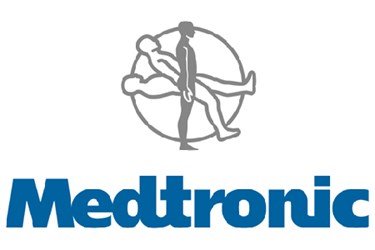Medtronic-Covidien Merger Likely To Proceed, Despite Tax Changes
By Jof Enriquez,
Follow me on Twitter @jofenriq

After the U.S. Treasury recently announced new tax rules that would make it harder for U.S. companies to consummate tax inversion deals, Medtronic and Covidien said they are still going ahead with their planned merger.
“Both we and Medtronic are evaluating the intended changes,” Covidien chairman, president, and CEO Joe Almeida wrote in an SEC filing. “However, the combination of Medtronic and Covidien has always been primarily driven by the companies’ strategic decision to become the world’s premier medical technology and services company. Nothing that was announced yesterday changes that or impacts our commitment to moving forward and closing the transaction. The companies are working closely together and are continuing with integration planning.”
The Treasury Department earlier announced tweaks to the tax code to make it less profitable and more complicated for American companies to reincorporate abroad by acquiring a foreign firm — thereby skimping on tax payments owed to the U.S. government.
Per the Wall Street Journal, the measures are meant to:
- Prevent inverted companies from accessing a foreign subsidiary’s earnings while deferring U.S. tax through the use of creative loans, which are known as “hopscotch” loans
- Prevent inverted companies from restructuring a foreign subsidiary in order to access the subsidiary’s earnings tax-free
- Close a loophole to prevent inverted companies from transferring cash or property from a CFC to the new parent to completely avoid U.S. Tax
The new rules also prohibit techniques such as using “cash boxes,” whereby passive assets are used to inflate the foreign firm’s size, and “spinversions,” which occur when an American company spins off a unit as a foreign firm and another U.S. company acquires the foreign spin off, the WSJ said.
The stiff measures were announced weeks after President Obama promised a crackdown on corporate inversions sweeping across many industries including the medical device sector. He reiterated that commitment this week after the Treasury Department’s announcement.
“In the weeks and months ahead we should do even more to bring fairness to our tax code, help our businesses create more American jobs, and expand opportunity for all,” Obama said in a statement released by the White House.
Analysts say the new tax rules might slow down these controversial deals, but ultimately will not stop them.
Debbie Wang, an analyst with Morningstar in Chicago, told the Minneapolis Star Tribune that the Medtronic-Covidien merger would likely push through based on its “strong strategic value.”
Jan Wald and Erica Layon of Benchmark Research said in a Barron’s article that the deal “should fall outside of these new rules. Thus we continue to believe that the acquisition will go through as announced.”
Under the $42.9 billion deal announced in June, Medtronic would have to pay Covidien a break-up fee of $850 million should it decide to back out, but former Medtronic CEO Bill George says that is unlikely, according to MPR News.
“That's 2 percent of the deal, of a $43 billion deal," he told MPR News. "The deal is worth a lot more value than that. It's going to produce a lot more profit than that in year one. So I don't think that is going to be the deciding factor here.”
“While the notice will present challenges for some U.S. companies seeking to invert, most companies should be able to navigate the notice and complete a successful inversion with proper planning,” Linda Z. Swartz, head of the tax practice at Cadwalader, Wickersham & Taft, said in a note, according to the New York Times.
“This doesn’t solve the problem or prevent inversions from occurring,” Sam Lichtman, a partner in the tax practice group at the law firm Haynes and Boone, told the NYT. “The announced inversions will still go ahead.”
